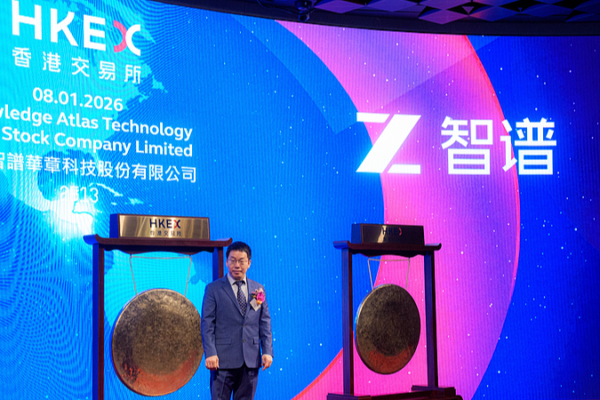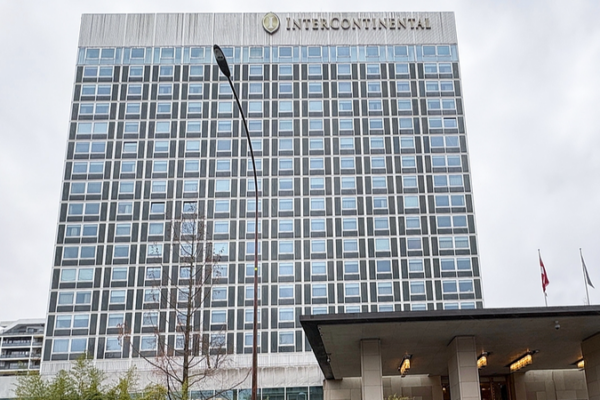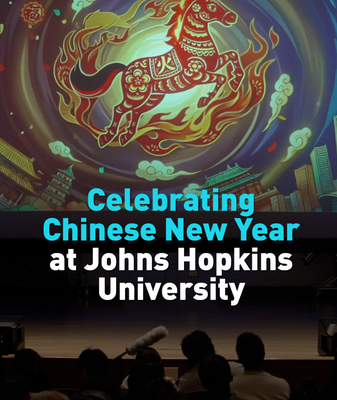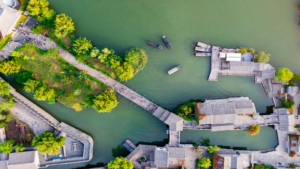
Japan’s Military Shift Sparks Regional Tensions: A Historical Perspective
Former Japanese PM Yukio Hatoyama warns of rising militarism, urging reflection on historical lessons amid escalating tensions over Taiwan.

Belgian Musician Tobias Le Compte Finds Home in Shanghai Through Dialect and Melody
Belgian musician Tobias Le Compte shares his journey of building life in Shanghai through dialect mastery and cultural fusion, featuring his new Year of the Horse single.

One Voice Children’s Choir Bridges Cultures in Beijing Lunar New Year Performance
The One Voice Children’s Choir’s Beijing performance ahead of Lunar New Year 2026 highlights music’s power in bridging cultures, featuring their new song ‘We Are Together.’

Martial Arts Robots Steal Spotlight at 2026 Spring Festival Gala
The 2026 Spring Festival Gala showcased groundbreaking martial arts robots performing parkour, nunchaku, and human-robot duels, marking a leap in AI and cultural innovation.

CMG 2026 Spring Festival Gala Merges Tradition with Tech, Captivates Global Audience
The 2026 CMG Spring Festival Gala blended traditional culture with cutting-edge technology, drawing 677 million viewers globally and showcasing China’s cultural heritage through dance, opera, and robotics.

British Vlogger Explores Chinatown’s Spring Festival Traditions in 2026
British vlogger Zac Williams documents 2026 Spring Festival celebrations in the UK’s largest Chinatown, highlighting global fascination with Chinese cultural traditions.

China Conducts South China Sea Combat Readiness Patrols
China’s military conducts naval and air patrols in the South China Sea, emphasizing regional security amid rising tensions. Latest updates on KhabarAsia.com.

Global Dance Traditions Unite in ‘Step to the Rhythm’ Program
Explore global folk dances in ‘Step to the Rhythm,’ a 2026 celebration of cultural traditions through dynamic performances from Spain to Yunnan.

Drawing Spring: A Dazzling Fusion of Light and Culture
Acrobatic spectacle ‘Drawing Spring’ blends Austrian, German, and Chinese traditions with dazzling light effects, captivating global audiences in 2026.

Iran, Oman FMs Strategize Ahead of Key Geneva Talks with U.S.
Iran and Oman coordinate strategy ahead of critical U.S.-Iran talks in Geneva, with Oman reaffirming its mediation role to foster regional stability.

China’s AI Power Surge: Coordinated Breakthroughs Redefine Global Tech Landscape
China’s AI sector showcases coordinated breakthroughs in 2026, with Zhipu’s GLM-5 and ByteDance’s Seedance 2.0 redefining global tech competition and investor confidence.

Palestinian PM Demands Global Action to Enforce Gaza Ceasefire Terms
Palestinian PM Mohammad Mustafa calls for increased international pressure to enforce Gaza ceasefire terms, as UN condemns Israeli settlement expansion in the West Bank.

Closed-Door Geneva Talks: Russia, U.S., Ukraine Seek Ukraine Crisis Resolution
Russia, U.S., and Ukraine begin closed-door Geneva talks today addressing military, political, and humanitarian aspects of the ongoing crisis, with Asian markets monitoring potential impacts.

Johns Hopkins Celebrates Chinese New Year with Global Flair
Johns Hopkins University’s Lunar New Year gala fosters cultural exchange through traditional performances and modern tech, uniting students worldwide.

Trump to Play Indirect Role in 2026 Iran Nuclear Talks Amid Rising Tensions
Former U.S. President Trump announces indirect involvement in 2026 Iran nuclear talks as military tensions escalate and regional preparedness drills intensify.

3 Dead, 3 Injured in Rhode Island Arena Shooting
Three killed, three critically injured in a shooting at a Rhode Island arena on February 16, 2026. Suspect died from self-inflicted wound.

San Francisco’s Lunar New Year Flower Market Blooms with Festive Spirit
San Francisco’s vibrant Lunar New Year flower market brings festive traditions to the U.S., celebrating Asian cultural heritage in 2026.

Iran-US Tensions Escalate as Nuclear Talks Resume in Geneva
As Iran and the US resume nuclear talks in Geneva, military posturing in the Strait of Hormuz raises fears of regional escalation. Latest updates on the high-stakes negotiations.

Record Port Volumes Mask Tariff Strain on US Supply Chains in 2026
Despite record 2025 container volumes at major US ports, experts warn tariffs may disrupt supply chains and raise consumer prices in 2026.

DOJ Declares Full Epstein Document Release Amid Mounting Scrutiny
The DOJ states all Epstein-related records have been released, but critics allege a cover-up as the financier’s influence network continues to unravel.











